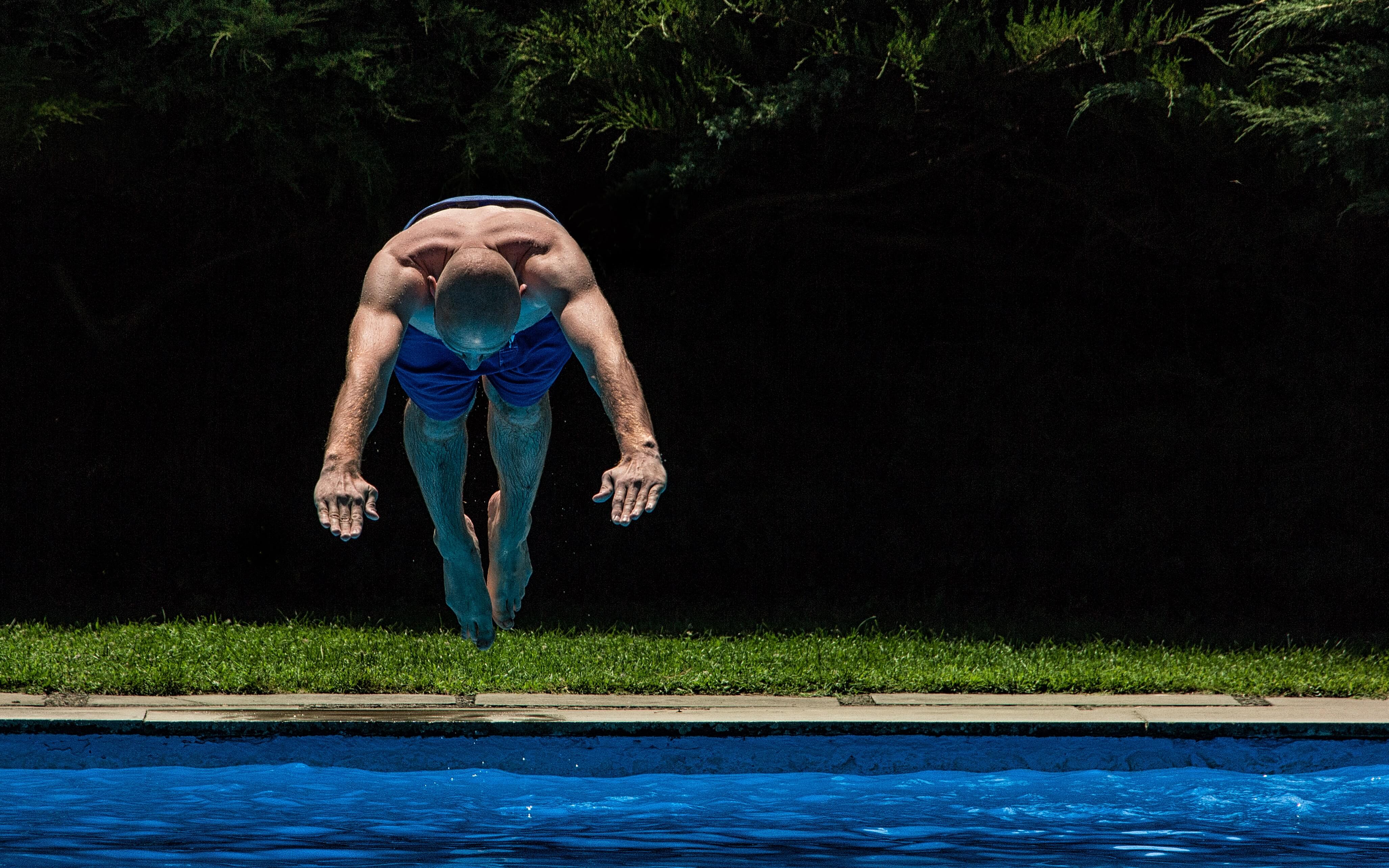Swimming Pool Diving Injuries
Swimming Pool Diving Injuries

Swimming pools offer a refreshing escape from the summer heat and are a source of fun and relaxation for many. However, it’s essential to be aware that swimming pool diving injuries are not uncommon and can lead to severe consequences.
Diving into a swimming pool can be an exhilarating experience, but it also carries inherent risks. Understanding the common causes of diving injuries is the first step in prevention.
Shallow Water: One of the leading causes of diving injuries is shallow water. When individuals dive into pools with insufficient depth, they risk hitting the bottom, resulting in head, neck, or spinal injuries.
Lack of Proper Training: Inadequate diving technique and a lack of training can significantly contribute to injuries. Novice divers often lack the skills to enter the water safely, increasing the likelihood of accidents.
Underestimating Pool Hazards: Pools can contain unseen hazards, such as submerged objects or uneven surfaces. Failure to recognize these dangers can lead to injuries upon impact.
Understanding the potential risks and types of injuries associated with swimming pool diving is crucial for swimmers and pool owners.
Head and Neck Injuries: Diving headfirst into shallow water or misjudging the depth can result in head and neck injuries, including concussions, fractures, or even paralysis in severe cases.
Spinal Cord Injuries: Impact with the pool bottom or other submerged objects can cause spinal cord injuries, leading to long-term or permanent paralysis.
Limb Injuries: Divers may also sustain injuries to their arms, legs, or extremities due to collisions with pool walls, decks, or other swimmers.
Drowning: While not a direct diving injury, diving accidents can lead to drowning if a diver loses consciousness upon impact. Immediate rescue and medical attention are crucial in such cases.
Preventing swimming pool diving injuries is a shared responsibility among swimmers, pool owners, and operators. Here are key prevention measures to consider:
Proper Depth and Warning Signs: Pool owners should ensure that the pool’s depth is suitable for diving and clearly indicate the depth with visible warning signs. Shallow areas should be marked clearly to discourage diving.
Safety Education: Promote safety education and proper diving techniques for swimmers, especially children and inexperienced divers. Encourage them to use diving boards or platforms when available.
Supervision: Always have a responsible adult or lifeguard present when the pool is in use, particularly during gatherings or parties. A vigilant supervisor can quickly respond to potential accidents.
Regular Inspections: Pool operators should conduct regular inspections to identify and address hazards, such as submerged objects or damaged diving boards.
Proper Diving Boards and Platforms: Ensure that diving boards and platforms are well-maintained and meet safety standards. Divers should use designated areas for diving.
No Diving Zones: Clearly mark areas where diving is prohibited, such as shallow ends, wading pools, or areas with obstructions. Enforce these restrictions to prevent accidents.
Swimming pool owners and operators must be aware of legal and liability aspects associated with diving injuries:
Liability: Pool owners may be liable for injuries if they fail to provide a safe environment, adequate warnings, or proper supervision. Liability can extend to public and private pool operators alike.
Insurance Coverage: Adequate liability insurance coverage is crucial for pool owners to protect themselves against potential accident lawsuits.
Compliance with Regulations: Pool owners and operators should ensure compliance with local regulations and safety standards, including pool depth requirements and diving board specifications.
In the unfortunate event of a swimming pool diving injury, knowing how to respond promptly can make a significant difference:
Emergency Services: Call emergency services immediately if a diver sustains a severe injury. Time is critical in cases of head, neck, or spinal injuries.
Immobilization: If there is a suspicion of spinal injury, avoid moving the injured person’s head and neck. Immobilize them and wait for medical professionals to arrive.
CPR Training: Learning cardiopulmonary resuscitation (CPR) can be invaluable in near-drowning or losing consciousness.
First Aid Kit: Keep a well-equipped kit near the pool area to treat minor injuries, such as cuts or bruises, immediately.
Swimming pool diving injuries can have severe consequences, but these risks can be significantly reduced with awareness, education, and preventive measures. The pool owners, operators, swimmers, and supervisors are responsible for working together to create a safe and enjoyable pool environment. By prioritizing safety and following best practices, we can minimize the occurrence of diving injuries and ensure that everyone can enjoy the pleasures of poolside fun with peace of mind.
Photo by Veit Hammer on Unsplash